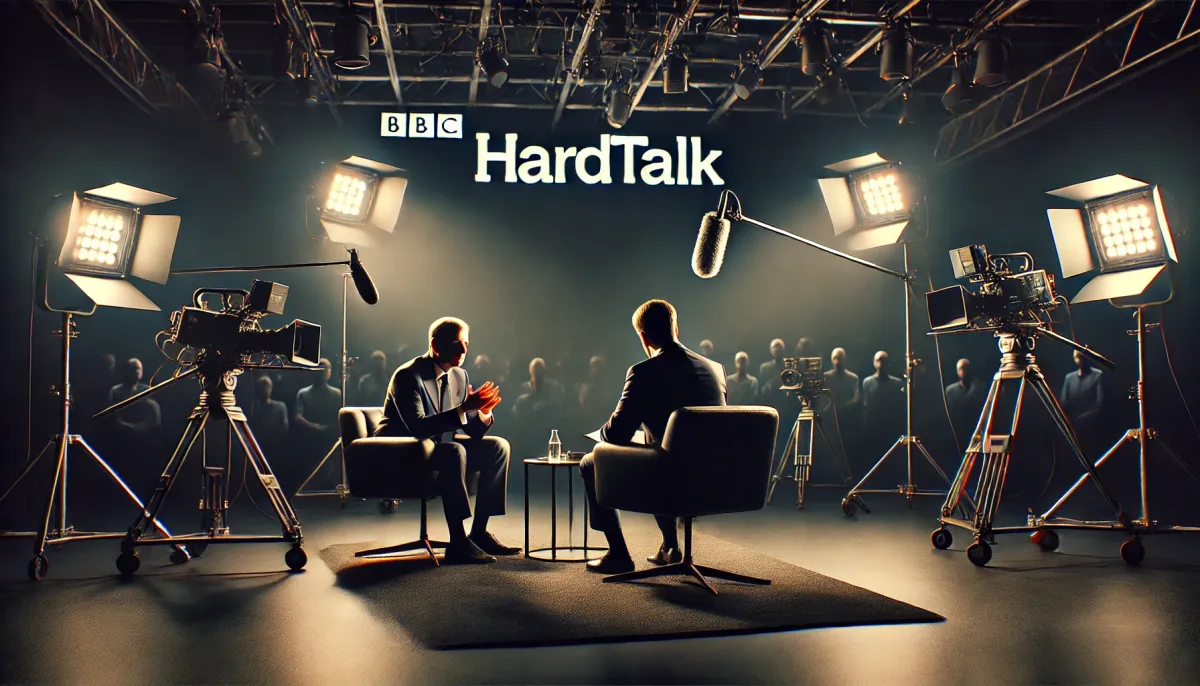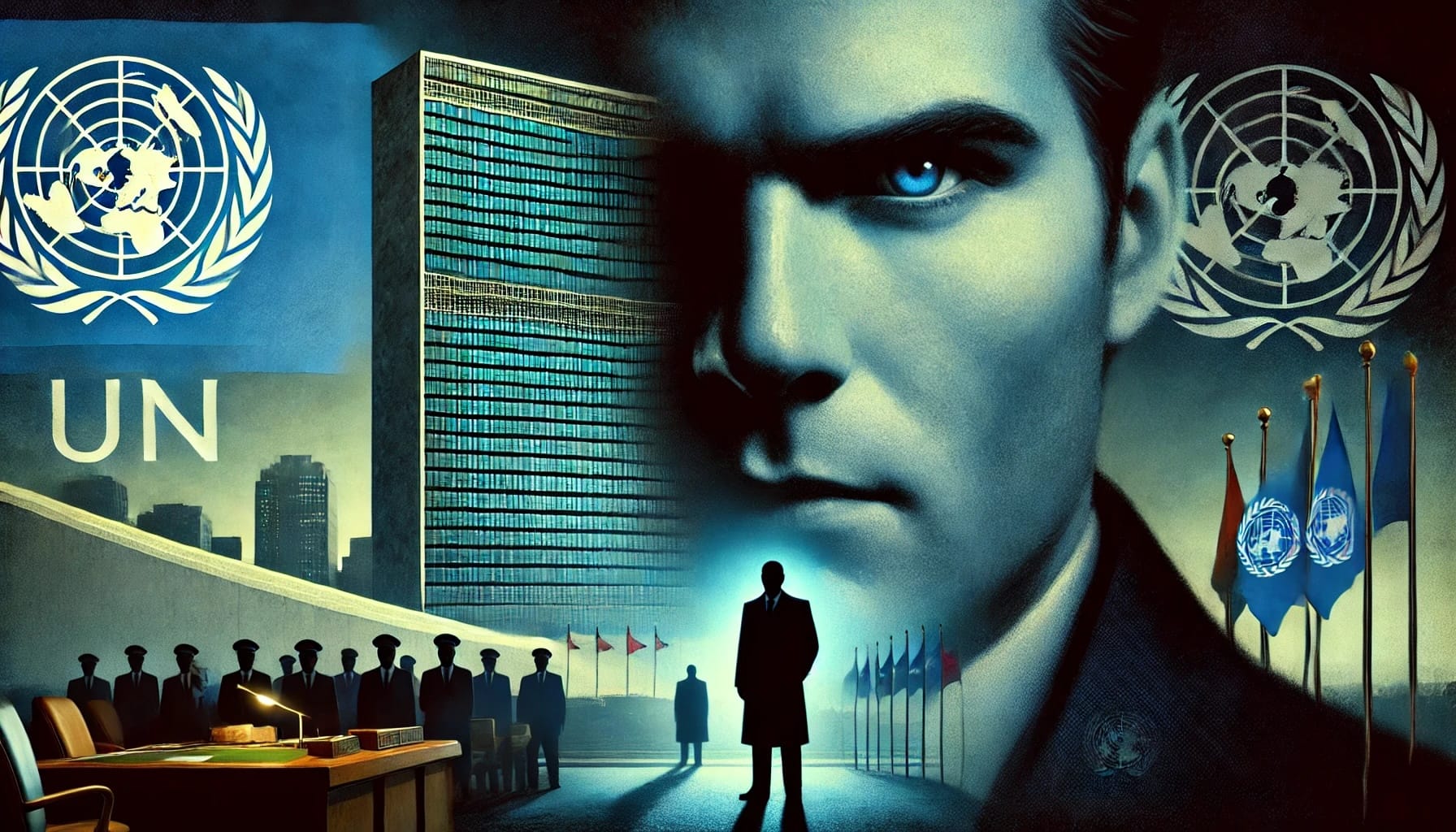BURNING TRUTH: When Fiction Challenges Power

A HARDtalk Interview with Victor Modström
Did this conversation between BBC's renowned HARDtalk and the controversial author of "The 13th Apostle and the UN" actually take place? Was it buried in the archives of institutional censorship, or did it merely unfold in the realm of imagination? Perhaps these questions themselves reflect the themes of Modström's work - the blurred lines between truth and narrative, institution and individual, reality and perception. Whether this interview reached television screens or remains forever in the shadows might be less important than the questions it raises. After all, isn't reality something we each construct for ourselves? Read on, and draw your own conclusions.
Host: Victor Modström, your novel portrays the United Nations as a nest of conspiracy, religious manipulation, and bureaucratic corruption. Given the vital role the UN plays in maintaining global peace and security, isn't this kind of attack deeply irresponsible?
Modström: I appreciate you jumping straight to the heart of the matter, but I reject the premise of your question. This isn't an attack-
Host: [Interrupting] But it is an attack, isn't it? Your protagonist literally promotes burning churches, and your plot involves religious leaders manipulating UN policy. How else should we interpret this?
Modström: If you'll let me finish - this is a novel about the tension between individual conscience and institutional power. Yes, it portrays corruption and manipulation, but it also shows dedicated UN workers trying to maintain their integrity within a complex system.
Host: [Skeptically] Let's talk about those religious elements. Your portrayal of Archbishop Stankevičs as a manipulative fundamentalist who calls the EU a "new Soviet Union" - aren't you simply feeding into anti-religious prejudice?
Modström: The Archbishop represents a specific type of religious political activism, not religion itself. The novel actually explores-
Host: [Cutting in] But you have him blaming the refugee crisis on Europe's abandonment of Christian values. This reads like a caricature of religious leadership.
Modström: Look at recent headlines about religious influence in international policy. My fiction simply illuminates real dynamics. The novel also features religious characters who oppose this kind of manipulation.
Host: Your book extensively deals with social media's role in diplomatic crises. Your protagonist's Facebook posts about burning churches go viral and trigger actual violence. In an era of rising religious extremism, how do you justify including such inflammatory content?
Modström: The novel demonstrates precisely why we need to understand these mechanisms. The protagonist's philosophical critique of religious institutions gets stripped of context and weaponized by various actors. This isn't promoting violence; it's showing how digital communication can be misused.
Host: [Pressing harder] But you must see the irony here - you're publishing a novel that could itself be taken out of context and used to attack international institutions. Aren't you guilty of the very thing your novel criticizes?
Modström: That's an interesting parallel, but there's a crucial difference. A novel allows us to explore these dynamics thoughtfully, with nuance and context. It's the opposite of a viral social media post.
Host: Let's talk about leaks and whistleblowing. Your novel features Anonymous hackers and leaked UN memos. Some critics say you're essentially providing a handbook for institutional sabotage.
Modström: What I'm providing is a realistic look at how modern institutions actually function. The novel asks crucial questions: When does institutional loyalty become complicity? When should someone speak out? These aren't abstract issues - UN workers face these dilemmas daily.
Host: But your protagonist ultimately decides to "burn it all down," to quote your novel directly. What kind of message does that send?
Modström: That's a rather selective reading. The "burning" in the novel is about transformation, not destruction. The protagonist's actions force both the UN and religious institutions to confront their shadows - their unacknowledged compromises and corruptions.
Host: [Skeptically] And you don't think this will be used by populist politicians who want to dismantle international institutions?
Modström: Those who want to attack the UN will do so regardless. What my novel offers is a more nuanced understanding of these institutions - their flaws and their vital importance. You can't strengthen something by pretending its weaknesses don't exist.
Host: Your publisher calls this "Book One in The UN Shadows Series." Should UN officials be worried about what other secrets you're planning to expose?
Modström: [Smiling] They should be more worried about the secrets they're keeping. Fiction has a way of revealing truths that official reports never can.
Host: Victor Modström, thank you for facing HARDtalk's questions.
Modström: Thank you for the robust discussion.
This transcript has been edited for length and clarity.
